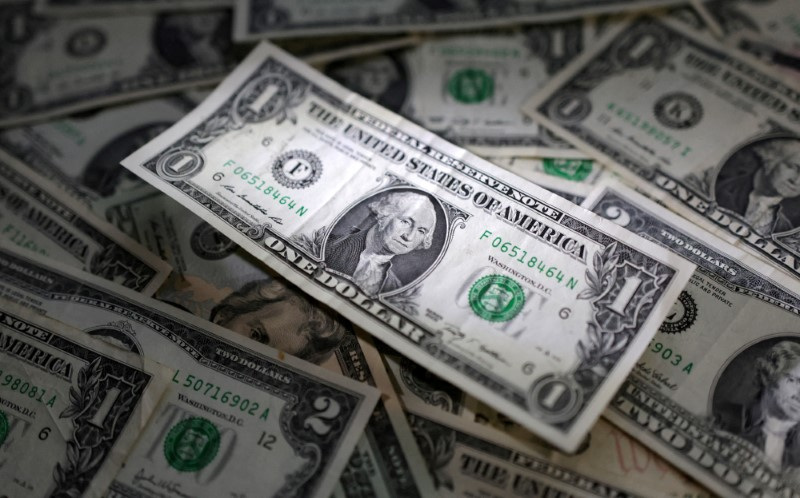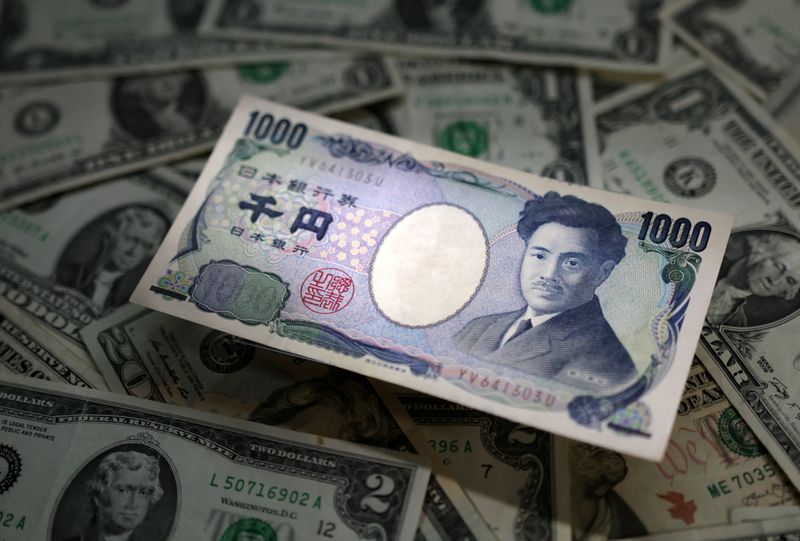
By Rae Wee and Alun John
SINGAPORE/LONDON (Reuters) -Japan’s yen strengthened on Wednesday on growing bets on a rate hike at the Bank of Japan’s next meeting, while cooling British inflation offered relief to the pound, but traders were reluctant to buy too much into either ahead of U.S. price data.
U.S. consumer price index numbers for December are the main scheduled global economic release of the week, and a figure that comes in above the 0.2% monthly increase in core CPI that markets expect could further limit the scope for Federal Reserve rate cuts this year.
That in turn would likely give greater impetus to this month’s global bond selloff, which has also supported the dollar.
There was sufficient information to keep FX traders busy before then, however, particularly in Japan, where the yen strengthened on the back of comments from BOJ Governor Kazuo Ueda, who said the central bank would raise interest rates and adjust the degree of monetary support if improvements in the economy and price conditions continue.
His remarks come just a day after deputy governor Ryozo Himino said the BOJ would debate whether to raise interest rates at next week’s policy meeting.
The dollar was last down 0.6% on the yen at 156.99 as Japanese government bond yields, particularly rate-sensitive two-year yields, hit multi-month highs. (JP)
“It would be an odd thing for the BOJ to skip January’s meeting,” said Jordan Rochester, head of EMEA fixed income, currencies and commodities strategy at Mizuho (NYSE:MFG), pointing to multiple factors, including a pickup in Japanese CPI, firm wages, and higher oil prices.
“A lot of course depends on next Monday with Trump,” he added, referring to the inauguration of U.S. President-elect Donald Trump. “If it wasn’t for that event risk this market would be close to fully pricing in the meeting.”
“The downside move in USD/JPY this morning is the right thing to see.”
Eyes were also on Britain, where data showed inflation slowed unexpectedly last month and core measures of price growth – tracked by the Bank of England – fell more sharply, welcome news for finance minister Rachel Reeves after a market selloff.
While British government bond yields fell sharply after the data, which caused investors to increase expectations of a Bank of England rate cut in February, the pound was marginally firmer on the day at $1.2223. [GB/]
Analysts said that as last week’s rise in gilt yields sparked worries about the state of the British economy, and caused the pound to fall, lower gilt yields were a support for sterling at present, contrary to the typical pattern. [GBP/]

Elsewhere, the euro was steady at $1.0302, as were most other majors, including the Swiss franc at 0.9119 per dollar, and the Australian dollar at $0.6201.
Eyes were also on China where the onshore yuan eased to trade just a fraction from the daily downside limit of its trading band with the U.S. dollar, maintaining a weak bias despite a persistently firmer than expected official guidance fix and signs of tightness in domestic money markets. [CNY/]
This post is originally published on INVESTING.


